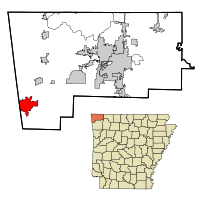Leverett Approves Broadband Initiative in Small New England Town
Not long ago, we told you about Leverett, Massachusetts, the small town of 1,851, that has been discussing the possibility of building a community network. Residents and businesses currently use a combination of satellite, dial-up, DSL, and wireless, and about 6% of the population has no Internet access at all. People are tired of lost opportunities in a town strategically situated near several colleges. The town just approved the proposal to invest in a municipal network.
Last Saturday, April 28th, the measure to build the network was approved at Leverett's Annual Town Meeting. The needed two-thirds vote came easily, with 306-33 in favor, at the packed meeting at the Leverett Elementary School auditorium. Enthusiasm and expectations are high. From a Fran Ryan article in the Gazettenet.com:
For many, the lack of adequate Internet access has created problems with work, school and even the ability to sell their homes.
"Right now we have hopeless telephone service, useless cellphone service, and no internet service," said resident Raymond Bradley. "This will completely change our lives,"
The current plan is to borrow $3.6 million to create a fiber-optic network that will connect every home and provide triple play services across town. As you may recall from our earlier article, Internet access is only part of the problem - Leverett has had longstanding difficulties with telephone service due to decaying infrastructure. The situation is so bad, the State Department of Communications ordered Verizon to make repairs in over 100 towns in western Massachusetts. With this vote, however, Leverett has decided to take control of its own fate.
Leverett received a $40,000.00 planning grant from the Massachussetts Broadband Institute and benefited from the expertise and efforts of the Wired West group. Leverett's last mile project will connect with MBI's middle mile project.
According to the Leverett Broadband Committee, the investment will pay off rather quickly. This from an April 18th Ben Storrow GazetteNet.com article:



